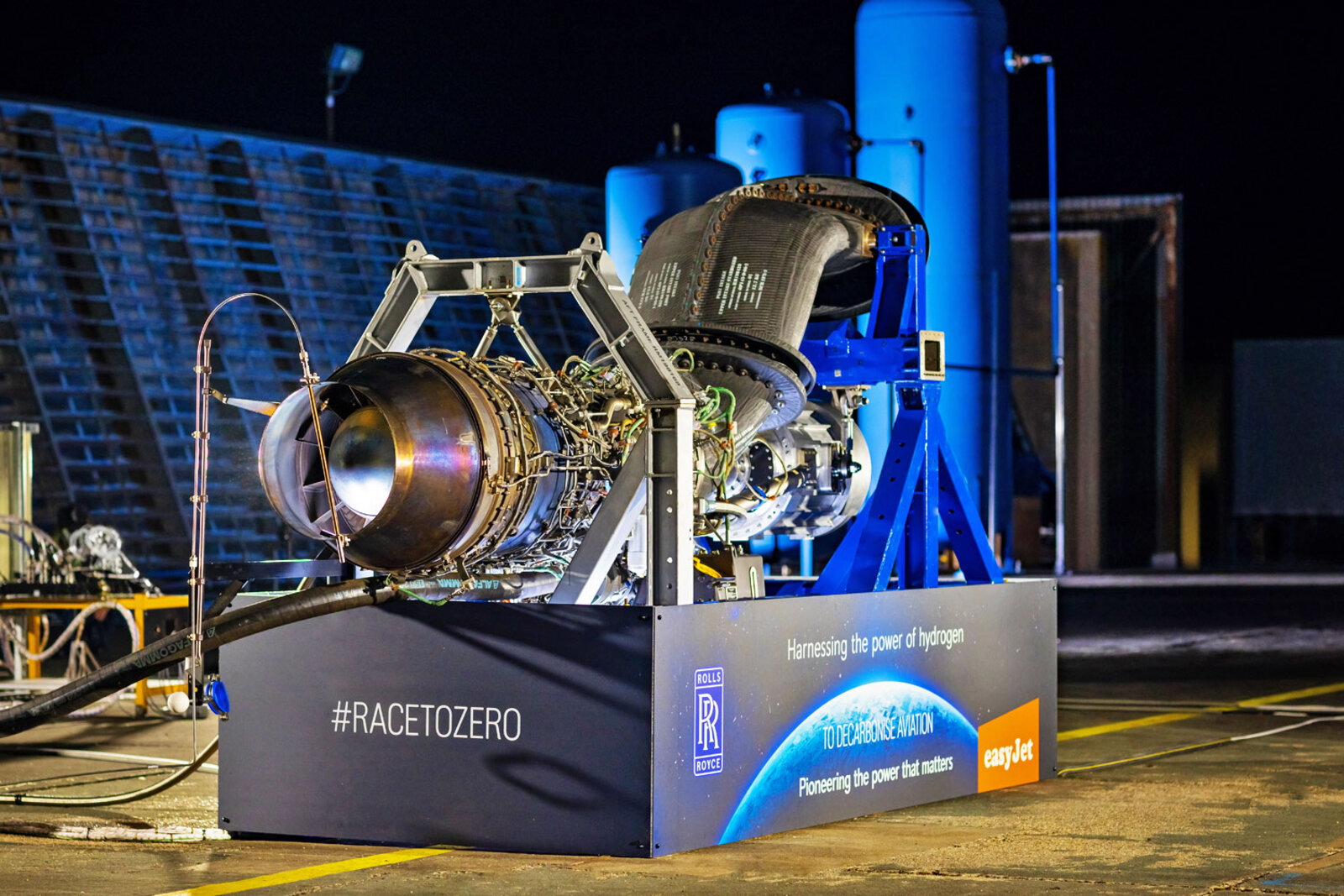Rolls-Royce tests hydrogen as jet fuel — good news for MENA?

Could short-haul flights run on hydrogen? Rolls-Royce is testing the use of hydrogen rather than conventional aviation fuels to power jet aircraft, according to a company statement yesterday. The tests — carried out in partnership with budget airline easyJet — aim to test whether a jet engine can be operated to run completely on hydrogen fuel in a bid to cut the aviation industry’s emissions.
Close, but no cigar: The results so far show that jet engines using hydrogen can be started up and run at low speeds, the news outlet reports. Liquid hydrogen — which needs to be cooled to -253°C — requires four times as much space as the traditional aviation fuel used to fly the same distance. It must be stored as liquid and then turned back into gas before being burned as fuel. The aviation industry would need significantly more research and investment to develop an entirely new engine — as well as a complete redesign of the aircraft — to accommodate the use of hydrogen fuel.
REMEMBER- The International Civil Aviation Organization recently agreed to a long-term global goal to make the industry net zero by 2050, with some 184 countries — including almost all of MENA — agreeing to the goal. This would require slashing emissions, accelerating the adoption of new aircraft technologies, streamlining flight operations, and figuring out the role of sustainable aviation fuels (SAFs).
GCC airlines have already hopped on the SAF wagon: Etihad Airways completed its first SAF-fueled flight from Tokyo last month. The airline is looking to slash its 2019 emissions by 50% by 2035 and achieve net zero by 2050, the company’s VP of procurement and supply chain said, according to WAM. Qatar Airways announced the purchase of 5 mn gallons a year of SAF over the next five years from US-based Gevo last month.
If Rolls-Royce succeeds, this could be great news for MENA: The region has been ablaze with green hydrogen news as of late, including Egypt signing nine framework agreements with international power companies at COP27 to establish green hydrogen and ammonia plants to collectively produce up to 7.6 mn tons of green ammonia and 2.7 mn tons of hydrogen a year. Saudi Arabia’s Public Investment Fund also inked an agreement last week with five South Korean firms to build a hydrogen and ammonia plant with a generational capacity of 1.2 mn tons annually.
